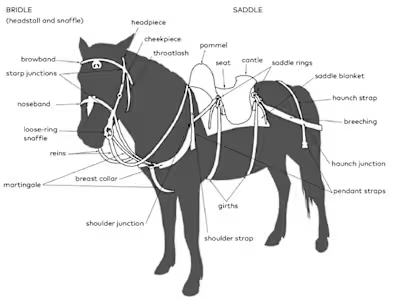Alaska Real Estate Lesson Plan: Money Management and Licensing

Chapter 2 Overview
In this chapter we will look at some of the licensing responsibilities and laws that are in place for the state of Alaska as well as what the laws say about the management of deposits, trust funds, and payments. We will take a look at what legal protection exists for the landlord and the tenant. We will discover what Alaska law has as requirements for licensing in the state and what duties and responsibilities rest with the licensee. We will learn how the landlord and the tenant share some responsibilities during the tenancy and how some responsibilities lie solely with one or the other. Finally, we hope to help outline what constitutes good money management according to the Alaska Landlord Tenant Act and other regulations governing real estate in the state.
Learning Objectives
After Completing this Chapter, students will be able to:
• Recall the primary responsibilities of landlords when it comes to money management
• Recall the primary responsibilities of tenants when it comes to money management
• Understand what Alaska law mandates for licensing within real estate
• Understand how Alaska law governs the relationship between landlord and tenant
• What the protocol is for any issues, problems, complaints, and breach of agreement
Understanding the Landlord and Tenant Act
Within the state of Alaska the primary law governing the relationship between a landlord and tenant is the Landlord Tenant Act (LLTA), which first went into effect in 1972. According to the LLTA there are certain provisions that a landlord must supply to al tenants. Likewise every tenant also has their own responsibilities. According to the Alaska Landlord and Tenant Act, there are certain responsibilities the each party must uphold when entering into a rental agreement.
Tenant:
• Compliance with building and housing codes and help to keep the units and surrounding facilities clean and safe
• Being "reasonable" in the use and handling of all equipment and supplies provided
• Preventing others from causing damage and reporting vandalism
• Refraining from disturbing his neighbors
• Pay rent on time every time
• Obey any reasonable rules that the landlord put into effect at the time the agreement was made
Landlord:
• Provide legally required disclosures about the unit, property, and other tenant
• Provide all tenants with a safe living environment and to remedy situations that are not safe or healthy
• Give the tenant able warning about changes to rental terms and conditions
• Respect the privacy of the tenant and not invade that privacy unless necessary
• Required by law not to discriminate against who can and cannot rent the unit based on creed, color, religion, disability, or sexual orientation
• Be available to the tenant and communicate with the tenant often
• Remember that the tenant has rights and protection under the laws, just as they do
With this basic understanding of how the relationship between landlord and tenant is structured, we can begin to explore the finer details of licensing requirements, deposit regulations, and other details of the landlord tenant relationship.
Money and the LLTA
The Landlord Tenant Act makes provisions for the handling of money, payments, and deposits. These regulations govern both the landlord and the tenant and are designed to protect both parties during the term of the rental agreement.
Late charges
The LLTA does not make any ruling on whether or not landlords can charge late fees when payment is not made or if a bad check is written for the rent payment. At times they may set it up where a flat rate fee is charged whenever payments are late and the fee is the same
whether it is late by 1 day or 20 days. The fee may increase each time a payment is late, so late payment number one may be $25, late payment number two may be $50 and so on and so forth. The landlord can have it set up where the tenant is charged a small percentage fee every day that the payment is late, so a 2% fee may be charged each day that passes after the due date. Returned checks often have a heavy fee each and every time the check is returned. These points are important to remember because the LLTA does not make
provisions for late fee charges so it is up to the landlord and the tenant to agree on these terms during the discussion before the rental agreement is signed.
Security Deposit
Most landlords take advantage of their right to require a security deposit before any tenant begins living in the unit. This deposit serves as a barrier for the landlord and helps protect them from expenses they may incur from missed or late rent payments, damaged to the property, or other issues that may cost money to resolve.
According to Alaska regulations, “Except for units renting for more than $2,000 per month, security deposits and prepaid rents may not total more than two months’ rent.” Sometimes a landlord will have a non0refundable payment. This is usually just a portion of the security deposit amount and goes to cover expenses the landlord may have in checking out the tenant and approving them for the rental agreement. For example, the security deposit may be $500, with $125 being non refundable to cover background and credit checks that the landlord will run before the tenant moves in.
Trust Funds
Alaskan real estate laws make provisions for what a landlord can and cannot do with the security deposits or down payments that they receive from a tenant. Landlords are to place the funds in a trust fund or other account where it can be kept safe. Typically, the funds are not to be touched until the tenancy is terminated.
The situation will then be evaluated and it will be determined whether or not the landlord has a need for the money or if the tenant will receive the money back.
The Alaska Real Restate Commission states that “Failure of a licensee engaged in property management to deposit prepaid rents or security deposits in a trust account as required … is considered fraudulent or dishonest conduct.”
These rules are in place so that the landlord is held responsible for the funds and cannot use them on a whim for expenses not related to the occupancy or upkeep of that tenant’s unit.
If a tenant misses rent payments and the rental agreement is terminated, the landlord can keep the deposits to cover the missing rent.
If the rental agreement is ended and there has been damage done to the unit by the tenant, then the landlord can keep some or all of the money in the account to cover repairs and related expenses. Setting up the trust fund or other account helps protect both the tenant and the landlord during the course of the rental agreement.
Damages
As mentioned above, deposits are often held in order to cover any damages that occur while the tenant is in the unit. This can be a confusing area because according to Alaska statutes, “tenants cannot be charged for damages caused by ‘normal non abusive living.’” The trouble comes because there is often disagreement about what constitutes normal living wear and usage. There are some basic guidelines set up by the LLTA and the landlord and tenant can also negotiate these definitions prior to signing the rental agreement.
There are other situations where the damage may be the tenant’s responsibility or it may be the landlord’s responsibility. Both parties need to walk through the apartment before the rental agreement is officially terminated and look at the damages. The damaged the landlord reports needs to be compared to the list of disclosed damages that the tenant should have received at the start of the rental arrangement. If the damages are deemed to be the fault of the tenant then the landlord has all the rights to use the deposits to cover the damage, whether it is part or all of the deposit.
Returning the deposit
When the damages have been reviewed and it has been determined that the tenant gets the deposit refunded to them, the refund will be due the tenant within 14 days of the official termination of the rental agreement. In most cases, the only reasons why the landlord should keep some or all of the deposit would be to cover unpaid rent or to cover repairs for damages caused by the tenant. If a tenant feels the refund is not being paid in a timely manner they should contact the landlord first to try and work things out. If no progress is made, the tenant has the lawful right to pursue legal action against the landlord in order to receive their refund.
Licensing and Alaska Real Estate Laws
Someone cannot just one day decide to be a real estate agent in the state of Florida and begin working in the industry. There are federal and state laws that govern who can be a real estate agent, what education and training they need, the rules they must abide by, and how they are to be licensed.
Educational Requirements for Licensing
There are many requirements that a licensed real estate agent must have in order to legally practice in the state of Alaska. Education and training are among the most important and depending on your level, experience, field, and area of the state, there are different guidelines for how many hours of coursework and training are required.
According to Alaska Commerce regulations for the licensing of real estate agents “An applicant for licensure under AS 08.88.171 must complete 40 hours of education approved by the commission before the person may be licensed under that subsection. An applicant for licensure under AS 08.88.171 must complete 15 hours of education approved by the commission before the person may be licensed under
either of those subsections. A person who is licensed under this chapter must complete 20 hours of continuing education approved by the commission before the person's license may be renewed.”
There are also provisions in place that require licensees to have continual training and updates to their education. New laws must be kept up with, new rules and regulations need to be understood, and problems need to be addressed before they are repeated again.
Types of Real Estate Licences in Alska
There are three basic real estate licenses in Alaska:
• Salesperson: which is a person who works with a real estate broker in the offices and serves as an employee or as an independent contractor. These individuals work in the office and are typically not out in the field showing actual homes or working on deals and closing arrangements but rather handle the phone calls, emails, marketing, and work more behind the scenes to help the company be successful.
• Associate Broker: is a person who has satisfied all of the state and federal qualifications to become a broker but instead chooses to continue working in association with another broker instead of starting his or her own business. These are the people who work with other real estate brokers or associate brokers to meet clients, show homes, close on sales, and conduct the day to day business operations.
• Broker:this is any individual who has his or her own real estate business or any individual who serves as a broker for any other corporation or in any partnership. They work for themselves and may hire any number of salespersons and associate brokers to work with them, but it is their business, they are in charge and have the ultimate say and responsibility for any and all activity within the business.
Requirements to Get a License
According to Alaska rules and regulations regarding real estate licensing in the state there are specific guidelines that apply to each of the three licensing types that are available.
General- “The requirements to become a real estate agent in Alaska, regardless of the license type, include passing the appropriate exam and applying for licensure within six months after passing the exam. Applicants must pay the appropriate fees and meet the appropriate educational requirements. Applicants may not be under indictment for any type of felony that implies character untrustworthiness. Applicants also will not be issued a license if they are not in substantial compliance with a child support order. “
Salesperson- In addition to the basic guidelines mentioned above, each license type has its own unique requirements. The requirements to get a real estate license to be a salesperson in Alaska includes “being at least 19 years of age and working for a real estate broker licensed in Alaska.” Any felony charges must have been served in full before an individual can become a salesperson. To obtain this license the applicant must pass 40 classroom hours of real estate prelicensure courses that are certified by the state real estate commission.
Broker- To become a real estate broker in Alaska the requirements include the basics that were given for all licenses, plus the broker applicant need to have taken and passed 15 classroom hours of state approved broker training. The broker must have 24 consecutive months within the last 36 months as a real estate salesperson, and the real estate field must have been their primary profession. Any individual who has been convicted of a felony must wait seven years after the end of their sentence before they will be given the real estate broker license.
Associate broker- “The requirements to become a real estate agent in Alaska as an Associate Broker include the basic ones listed above for all agents, plus those of a regular real estate broker, except that a corporation or partnership can have only one broker in charge. The second person who meets the qualifications to have a broker license is considered an associate broker.” An associate broker is required to pass the real estate exams and they must work with and be associated with a licensed broker. A current associate broker will have the license suspended and new applicants must wait until five years after a felony conviction.
These rules and regulations are in place in order to protect the security of the real estate market and protect those who turn to real estate salespersons and brokers for help. The state of Alaska has examinations that certify individuals for these real estate positions and they also have study material, practice tests, and other tools that can help applicants be successful as they prepare for their real estate examinations.
The Examination
• There are two levels of examination: salesperson and broker. The Real Estate Commission in Alaska works with the Promissor Testing Services of Philadelphia, PA and contracts with them to prepare, administer, and grade the salesperson and broker exams.
• The Alaska Real Estate Commission establishes the exam contents, but Promissor retains full copyright over all of the content in the examinations.
• The examination is offered electronically and can be administered weekly at testing centers in Anchorage, semi-monthly at certain locations in Fairbanks, and quarterly in the Juneau area.
• The fee to take either exam is $100. • The exam can be taken and monitored at
another location on an as needed basis with special arrangements and an additional $50 fee.
• The Alaska real estate exams are now approved to be reimbursed as part of the state’s veterans education benefits for those with the GI Bill. Veterans may receive reimbursement for taking the Alaska Real Estate Broker/Associate Broker and Salesperson exam.
Points to Remember About the Tests
Before an applicant takes the real estate test, there are practice tests that they can take. These tests mimic the questions seen on the actual test. App0licants can review the answers to the questions as they take them and see if the answer was correct or incorrect. According to Alaska Real Estate Candidate Handbooks “ Since laws, rules, and regulations vary among states, no feedback is available for the state portion of the practice tests. There is no additional rationale as to why the answer is correct in the practice tests.”
The basic laws and regulations portion of the real estate exam has eighty (80) scored questions, which cover a wide range of topics, scenarios, and examples. Approximately ten percent (10%) of these questions will involve mathematical computations, formulas, and procedures.
The salesperson and broker examinations will have the basic law and regulations portion and they also contain five (5) pretest questions. These questions that do not count toward the score and are used merely for statistical usage by the Alaska Real Estate Commission. The pretest questions are formatted the same as all other questions on the exam, so candidates should answer every question that is on the exam.
“The state law portion of the Alaska examination consists of forty (40) scored items for the salesperson examination, and sixty (60) scored items for the broker examination. “ These two exams also have a set of pretest questions that are not identified and will not affect a score because they are for statistical use only.
Continuing Education & Renewal Information Renewal of the license is important in order to continue practicing in the state of Alaska. All current salespersons and brokers must renew their license on or before the expiration date. There is no grace period to practice on a lapsed license. “All Real Estate Licenses expire on January 31 of even-numbered years regardless of when first issued, except new licenses issued within 90 days of the expiration date will be issued to the next biennium.”
Renewal forms will be sent to every licenses real estate profession and these will be mailed out from the Alaska Real Estate Commission at least 60 days before the expiration date. The notice will be sent to the last address that is on file with the Commission, so it is important to keep all records and contact information up to date. As mandated by state regulations, each licensee is responsible to make sure records are up today and contact information is accurate for all licenses for up to two years after any license has lapsed, expired, been surrendered, suspended, or revoked.
Before a license can be renewed, the following requirements must be met: “An 8-hour continuing education core curriculum, identified by the Commission, that stresses current trends in real estate practices and changes in state, federal and case law in the areas of real estate sales, property management, community association management or commercial sales. 12 contact hours of continuing education in elective topics that meet the requirements designated by the Commission.”
There currently are ten Alaska real estate schools that offer training and exam preparations both online and through correspondence. These are approved by the state of Alaska and are valid for all real estate courses. These approved schools meet the educational requirements for salespersons and brokers. You can locate the school closest to you by contacting the Alaska Real Estate Commission.
“The Association of Real Estate License Law Officials (ARELLO) provides outstanding guidance to help all real estate professionals. Alaska real estate careers are enhanced by membership in the National Association of Realtors, and the National Association of Real Estate Brokers (NAREB). The National Association of Realtors, the world's largest professional association, is especially helpful in locating real estate jobs in Alaska for those interested.”
Exam Procedure
Candidates need to be at their designated test center thirty (30) minutes before the examination so they can check in and wait for the test to begin.
You will need an approved form of ID such as Birth Certificate, government issues ID, or Passport. Your photo may also be taken to accompany the test report and filing.
Candidates must look over and sign a Candidate Rules Agreement form before they take the real estate exam. If the agreement is not followed or cheating and tampering is suspected, the incident will be reported to the Commission. Disciplinary action may be taken which includes a fail on the test, fees, or prohibiting the applicant from applying for any real estate license within the state.
Once the exam is completed, candidates will receive a score report marked “pass” or “fail.” Candidates who pass will be given a report that also contains information on applying for their license. Candidates who fail will get a score report that includes a numeric score, diagnostic information, and information about reexamination.
Reservations for reexamination cannot me done that same day at the test center as there is a 24 hour minimum waiting period before a candidate can apply for retesting.
The examination’s two parts- general and state law- are scored separately. Candidates who pass one section and fail the other are required to retake the entire examination. For security reasons, review material of missed questions cannot be given to candidate to study for their retake.
Summary
There are many rules and regulations for how real estate works and how salesperson and brokers operate, do business, manage their clients, and become certified with the state. Whether it is dealing with deposits, clients, or licensing, there are state and federal laws that govern every aspect of the Alaska real estate field. These regulations are in place to protect everyone from the tenant to the landlord, and the broker on the job site to the salesperson in the office.
Lesson Review
In this chapter we have looked at some of the laws and regulations that are in place for the state of Alaska We have looked at what Alaskan law says about the management of deposits, trust funds, and payments. We have reviewed the basics of the Landlord Tenant Act and how it impacts money and finances and tenant landlord relationships. We have seen what legal protection exists for the landlord and the tenant. We closely examined what Alaska law has as requirements for licensing in the state and what the licensee is responsible for during their time as real estate salespersons or brokers. It is our hope that we have helped outline what constitutes good money management and what adherence to the licensing and other regulations looks like for Alaska real estate.
Quiz
Except in cases where the rent is more than $2,000 a month, what is the limit to how much of a security deposit can be charged when the rental agreement is made? 6 month’s rent 4 month’s rent 2 month’s rent Any amount
What does the LLTA say about a landlord’s right to charge late fees on rent payments? Late fees are never used in Alaska realty It says they are not allowed to charge a late fee It says they are allowed to charge a late fee It does not say one way or the other
Under what circumstances can the landlord keep some or all of the security deposit? To cover missed rent payments To pay for damages caused by the tenant To offset expenses regarding background checks prior to agreeing to the rental terms All of the above
Which of the following real estate workers must work with another licensed broker? A salesperson A real estate broker An associate broker None of the above
How long does an applicant need to wait after failing the real estate exam to apply to retake it? One day One week One month One year
Which of the following is not true about the Alaska real estate license examination? You can see if you pass or fail the exam You can see the answers to the questions missed so you can study more You will have some math and calculations based questions You must pass both the general and state law portions in order to pass the exam
Like this project
Posted Nov 15, 2023
Research Alaska Realtors and write a training lesson plan for realtors needing training review in the state- this is chapter 2 of 6 in total that were done.







